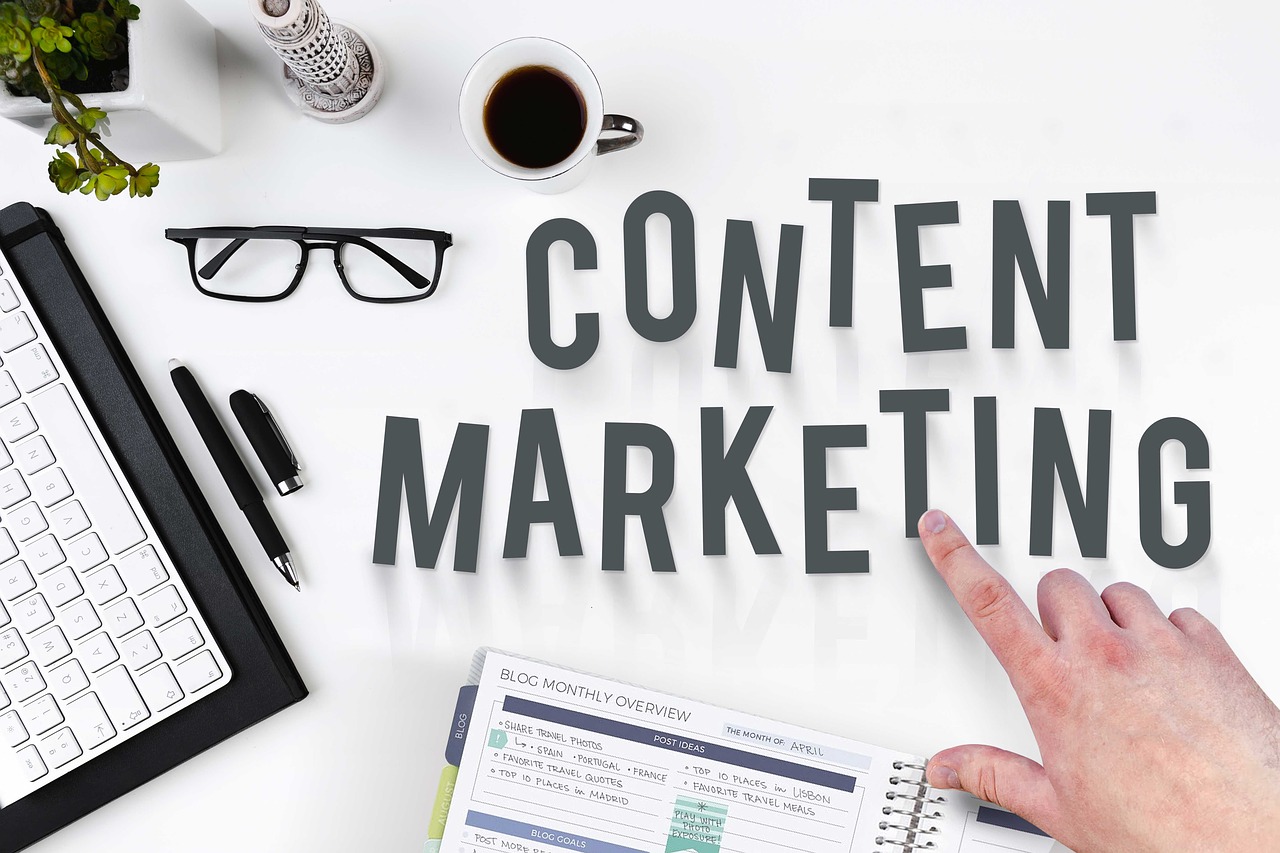
Navigating the SEO vs. PPC Landscape: Which Strategy is Best for Small Businesses?
In the world of digital marketing, small businesses face a critical decision – should they invest in Search Engine Optimization (SEO) or Pay-Per-Click (PPC) advertising? Both strategies have their own unique advantages and drawbacks, and the choice can have a significant impact on a business’s online visibility, lead generation, and ultimately, its bottom line.

SEO vs. PPC: Understanding the Differences
Search Engine Optimization (SEO) is the process of optimizing your website and its content to improve its ranking in organic search engine results. This involves techniques such as keyword research, on-page optimization, content creation, and link building. The goal of SEO is to increase your website’s visibility and attract more organic (non-paid) traffic.
On the other hand, Pay-Per-Click (PPC) advertising is a model where businesses pay a fee each time their ad is clicked. PPC campaigns are typically managed through platforms like Google Ads or Bing Ads, where advertisers bid on keywords and create targeted ads to appear at the top of search engine results pages (SERPs).
The Pros and Cons of SEO and PPC
To help you make an informed decision, let’s dive into the advantages and disadvantages of each strategy:
SEO Pros:
- Long-Term Visibility: Successful SEO efforts can have a lasting impact on your website’s visibility, driving consistent organic traffic over time.
- Cost-Effectiveness: Organic search traffic from SEO is free, making it a cost-effective marketing strategy in the long run.
- Credibility and Trust: Appearing in the top organic search results can increase your brand’s credibility and trustworthiness in the eyes of your target audience.
- Targeted and Relevant Traffic: SEO helps you attract users who are actively searching for your products or services, ensuring a higher likelihood of conversion.
SEO Cons:
- Time-Consuming: Improving your website’s search engine rankings through SEO can be a lengthy process, often taking several months to see significant results.
- Ongoing Maintenance: SEO requires continuous effort and optimization to maintain and improve your website’s performance in search results.
- Algorithmic Changes: Search engine algorithms are constantly evolving, and keeping up with these changes can be challenging for small businesses with limited resources.
- Difficulty Measuring ROI: Attributing specific sales or conversions directly to SEO efforts can be challenging, making it harder to measure the return on investment.
PPC Pros:
- Immediate Results: PPC campaigns can drive immediate traffic and leads, as your ads can start appearing at the top of search results as soon as your campaign is live.
- Precise Targeting: PPC allows you to target specific keywords, demographics, locations, and even user interests, ensuring your ads reach the most relevant audience.
- Measurable Results: PPC platforms provide detailed analytics and performance data, making it easier to track and optimize your campaigns for better results.
- Flexibility and Control: PPC campaigns can be quickly adjusted, scaled, or paused based on performance, giving you more control over your marketing efforts.
PPC Cons:
- Ongoing Cost: PPC advertising requires a continuous investment, as you pay a fee every time someone clicks on your ad.
- Ad Fatigue: Repeated exposure to your ads can lead to ad fatigue, where users become less responsive to your messaging over time.
- Competitive Landscape: PPC can be highly competitive, especially for popular and lucrative keywords, driving up the cost per click (CPC).
- Dependence on Platforms: PPC success is heavily dependent on the policies and algorithms of the ad platforms you use, which can change without notice.
Comparison Table: SEO vs. PPC
To help you visualize the key differences between SEO and PPC, we’ve created a comprehensive comparison table:
| Feature | SEO | PPC |
|---|---|---|
| Cost | Free (except for tools and resources) | Ongoing ad spend |
| Time to Results | Slow (several months) | Fast (immediate) |
| Targeting | Broad, based on user search intent | Precise, based on keywords, demographics, interests, etc. |
| Measurability | Harder to attribute direct sales/conversions | Detailed performance analytics |
| Longevity | Long-term visibility and traffic | Short-term visibility and traffic |
| Sustainability | Requires ongoing optimization and content creation | Requires ongoing ad spend and campaign management |
| Credibility | Higher perceived credibility of organic results | Perceived as more “salesy” by some users |
| Scalability | Scalable, but limited by search volume | Scalable, but limited by ad budget and competition |
When to Use SEO vs. PPC: A Small Business Perspective
Determining whether to focus on SEO or PPC (or a combination of both) for your small business largely depends on your specific goals, resources, and target audience.
Small Businesses Should Consider SEO When:
- Building long-term brand awareness and visibility
- Targeting high-intent, organic search traffic
- Having limited marketing budgets and needing a cost-effective strategy
- Wanting to establish credibility and trust with potential customers
- Aiming for sustainable, evergreen results
Small Businesses Should Consider PPC When:
- Needing immediate results and lead generation
- Targeting specific keywords, demographics, or locations
- Having a flexible marketing budget to invest in paid advertising
- Wanting to test and iterate on different marketing messages and offers
- Complementing existing SEO efforts to boost overall visibility
Hybrid Approach: Combining SEO and PPC for Maximum Impact
In many cases, the most effective digital marketing strategy for small businesses is to use a combination of SEO and PPC. This hybrid approach can help you leverage the strengths of both strategies and maximize your online presence and lead generation.
By using SEO to build a strong, long-term foundation and PPC to drive immediate traffic and leads, small businesses can create a comprehensive digital marketing plan that delivers sustainable results. This could involve:
- Using PPC to quickly test and refine messaging, offers, and target audiences
- Leveraging PPC data to inform SEO keyword research and content creation
- Optimizing PPC campaigns based on SEO performance insights
- Gradually shifting marketing budget from PPC to SEO as organic rankings improve
FAQs: Navigating the SEO vs. PPC Landscape
1. How long does it take to see results from SEO vs. PPC?
SEO is a long-term strategy, and it can take several months to see significant improvements in organic search rankings and traffic. In contrast, PPC can deliver immediate results, as your ads can start appearing at the top of search results as soon as your campaign is live.
2. Which strategy is more cost-effective for small businesses?
In the long run, SEO is generally more cost-effective for small businesses, as it relies on organic, free search traffic. PPC, on the other hand, requires an ongoing ad spend, which can quickly add up, especially for competitive keywords. However, PPC can provide a faster return on investment in the short term.
3. How do I measure the success of my SEO vs. PPC efforts?
Measuring the success of SEO can be more challenging, as it’s harder to directly attribute sales or conversions to specific SEO activities. PPC, on the other hand, provides detailed analytics and performance data, making it easier to track and optimize your campaigns. Small businesses may want to use a combination of SEO and PPC metrics, such as organic search rankings, website traffic, conversion rates, and return on ad spend (ROAS).
4. What are the main differences in targeting between SEO and PPC?
SEO focuses on broad, user-intent-based targeting, where you optimize your website and content to appear in organic search results for relevant keywords. PPC, on the other hand, allows for more precise targeting, as you can select specific keywords, demographics, locations, interests, and other factors to reach your ideal audience.
5. How can small businesses effectively combine SEO and PPC strategies?
The most effective approach for small businesses is often to use a hybrid strategy that leverages the strengths of both SEO and PPC. This could involve using PPC to quickly test and refine messaging, offers, and target audiences, while using SEO to build a strong, long-term foundation and drive sustainable organic traffic.
Conclusion: Choosing the Right Strategy for Your Small Business
Ultimately, the decision to focus on SEO, PPC, or a combination of both will depend on your small business’s unique goals, resources, and target audience. By carefully evaluating the pros and cons of each strategy, you can develop a tailored digital marketing plan that delivers the best results for your business.
Remember, the key is to be adaptable and willing to experiment. As your business and the digital landscape evolve, you may need to adjust your approach and find the right balance between SEO and PPC. Stay informed, test and iterate, and keep your focus on providing value to your customers – that’s the surest path to success.




